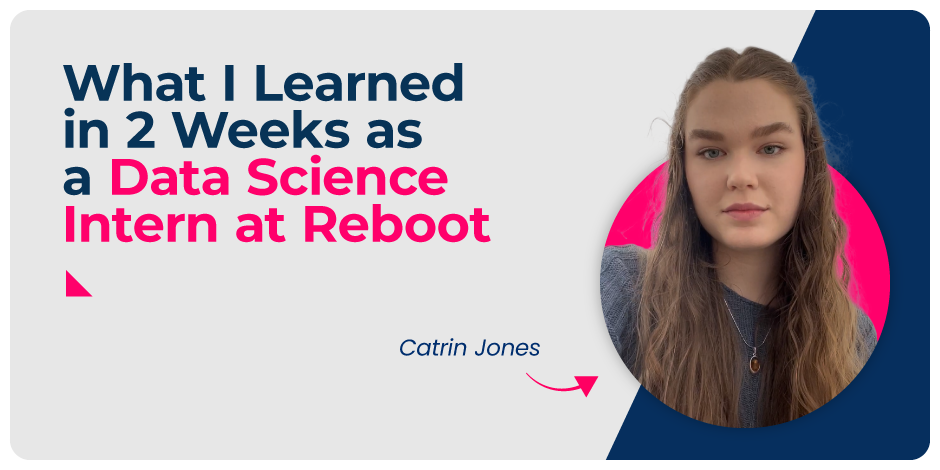
What I Learned in 2 Weeks as a Data Science Intern at Reboot
Hi! I’m Catrin Jones, a second-year Data Science student at the University of Sheffield. Over the Easter break, I took part in the University’s Workplace Insights scheme, in which companies submit projects for students to take on for a two-week period - they get an extra pair of hands and we get an invaluable learning experience and a taste of the corporate world.
My two weeks interning on the Data team at Reboot were exactly the kind of challenge I was hoping for. Before starting, I was so excited to get stuck into life at the search marketing agency, learn more about SEO strategies and Digital PR, and gain experience in a remote workplace. But what followed was one of the most genuinely interesting and rewarding things I’ve done in my degree so far.
So, here’s a quick(ish) rundown of how those two weeks went, and everything I learned along the way.
Week one – Setting up and diving in
After logging on and setting up Slack and ClickUp, I had an introductory call with Paul, the Senior Data Insights Manager. He gave me an overview of Reboot, the team, and my own project: analysing X's top 50 daily trends over the past year and identifying how many of those were football-related to help understand the global football conversation.
It may sound simple, but considering my experience with web scraping consisted of one 20-minute YouTube tutorial, I knew I had a learning curve ahead. After reading through the Data team's standard operating procedures (SOP) and documentation, I began exploring the site’s structure, quickly realising the URLs followed a predictable format which made automation much more manageable.
By the end of the first day, I was building out the scraper and joining my first group meeting, where I got to meet the rest of the data team. Everyone was working on individual projects but made time to share progress, troubleshoot together, and offer help where needed. It was a great intro to the collaborative culture at Reboot, which I got more of a taste for as the requests for reviews started popping up to cross-check and provide an alternative perspective on each other’s work.
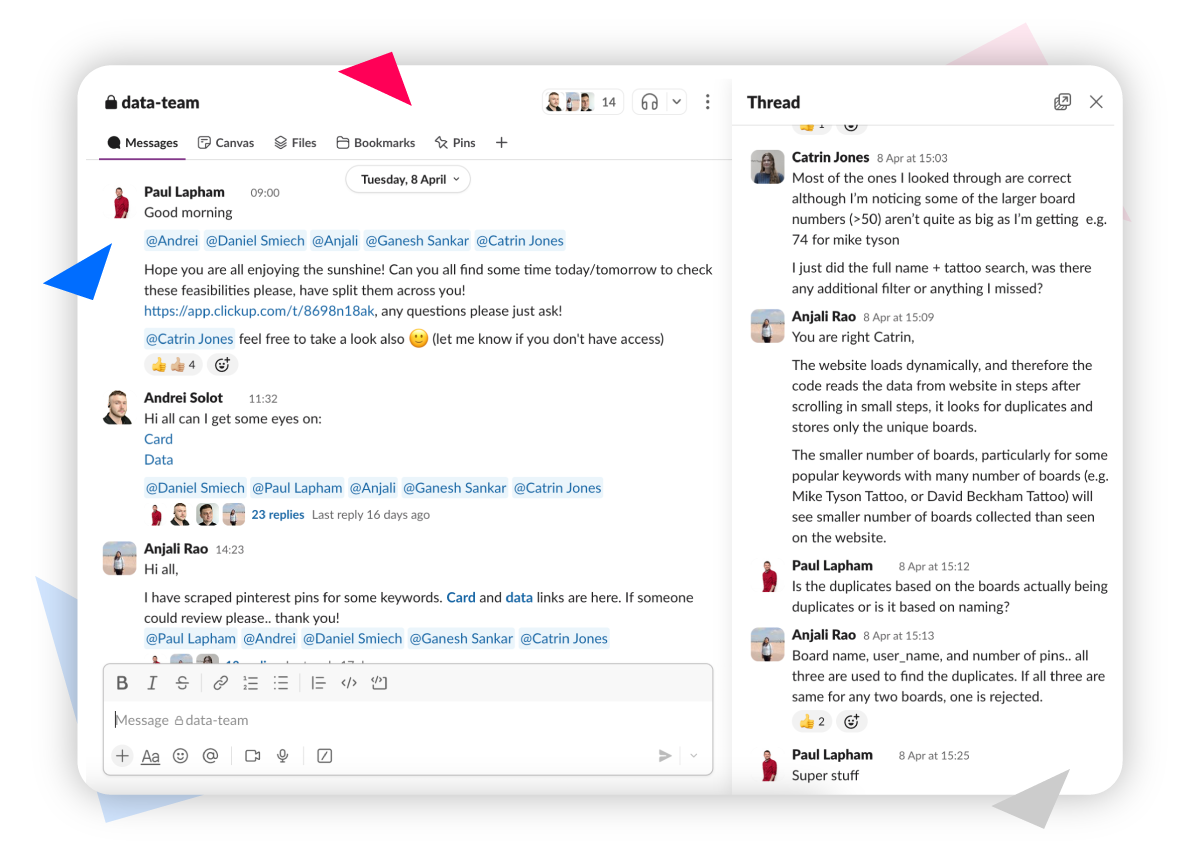
An insight into the Data team's Slack channel and internal reviews
Over the next few days, I refined the scraper to collect UK and worldwide trend data, then moved on to aggregating the hourly data into meaningful daily rankings. I designed a method that adjusted for how often and how long each trend appeared throughout the day, so I didn’t over-prioritise trends that only appeared briefly but ranked highly.
From there, and after discussing options with Paul, I introduced a classification step using DeepSeek to determine whether each trend was football-related. After testing on a small subset, we decided to upgrade to the paid version to avoid hitting API limits and speed things up. This allowed me to start building out trend summary sheets with each unique trend, its classification, and its frequency across the year for an interesting analysis.
Mid-week, I had a call with Fiona Vivian, HR Manager, to learn more about Reboot’s company values. I was genuinely impressed by their approach: a four-day work week, flexible hours, a strong nomad policy, and their methods to support employees through the downsides of remote working. It’s clear that Reboot really value their employees and the passionate and incredibly supportive people that I came across over my two weeks are a testament to the success of their work culture.
Week two – From data to insight
The second week kicked off with another team meeting to troubleshoot current projects, update progress, and plan the final stretch. With the classification completed, I began developing methods to analyse and summarise the data: calculating the percentage of football-related trends per region, exploring time-series changes around match days, and identifying the most frequently mentioned matches via hashtag analysis.
I also added extra statistics like average Tweet volume and daily ranking to give more context to the findings, making the data easier to interpret and more valuable for PR purposes. After finalising the dataset and accompanying key insights, this was sent off to identify potential campaigns.
As Wednesday rolled around, I wrapped up a write-up of my methodology to accompany the datasets and took part in an ideation session to brainstorm potential campaign ideas for a client. It was really interesting to watch the creative process behind campaigns and the inventive and relevant ideas everyone was formulating as we went.
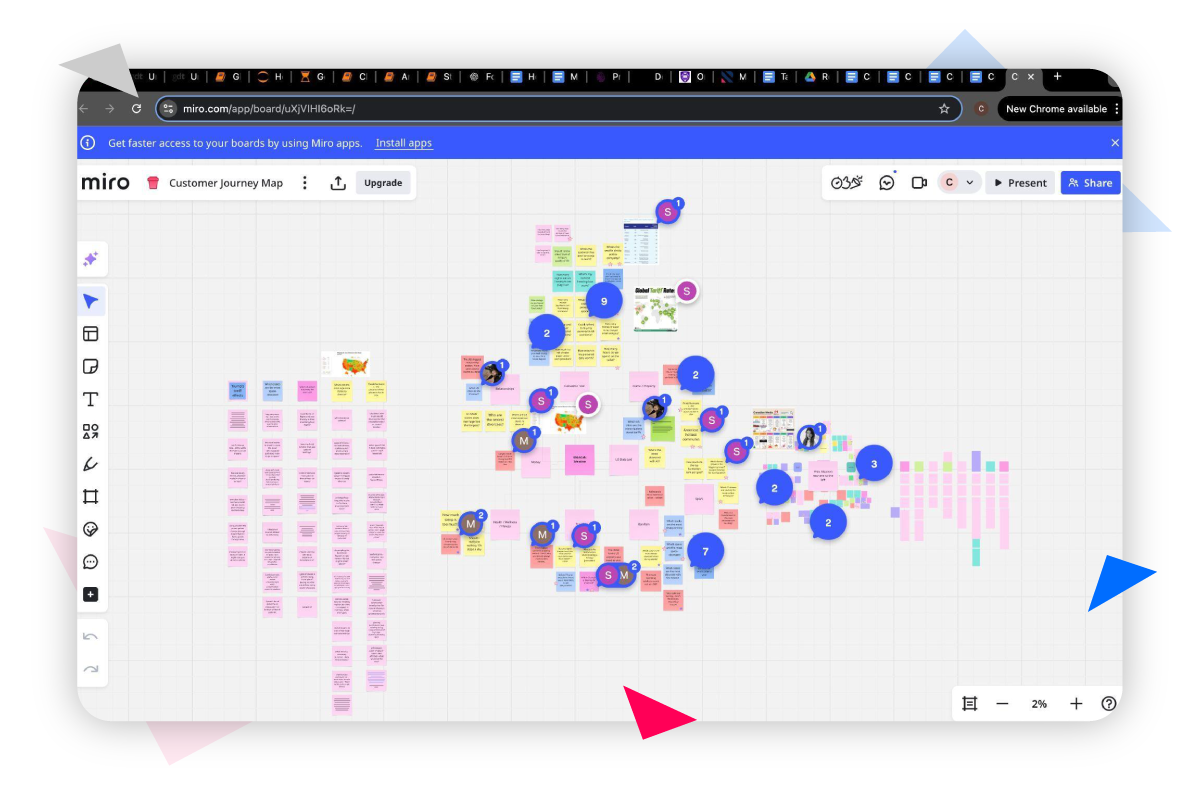
Screenshot of the Miro board from the Digital PR ideation session I joined
Finally, I shifted focus to making the project reusable. I added comments and created functions that would allow future users to re-run the pipeline on any country, topic, or timeframe, and adapted the classification and analysis methods to be flexible for different contexts. I also built in a configuration section to each step of the project: the scraper, classification, and analysis, so no digging around in the code was necessary, you just set your variables and hit run.
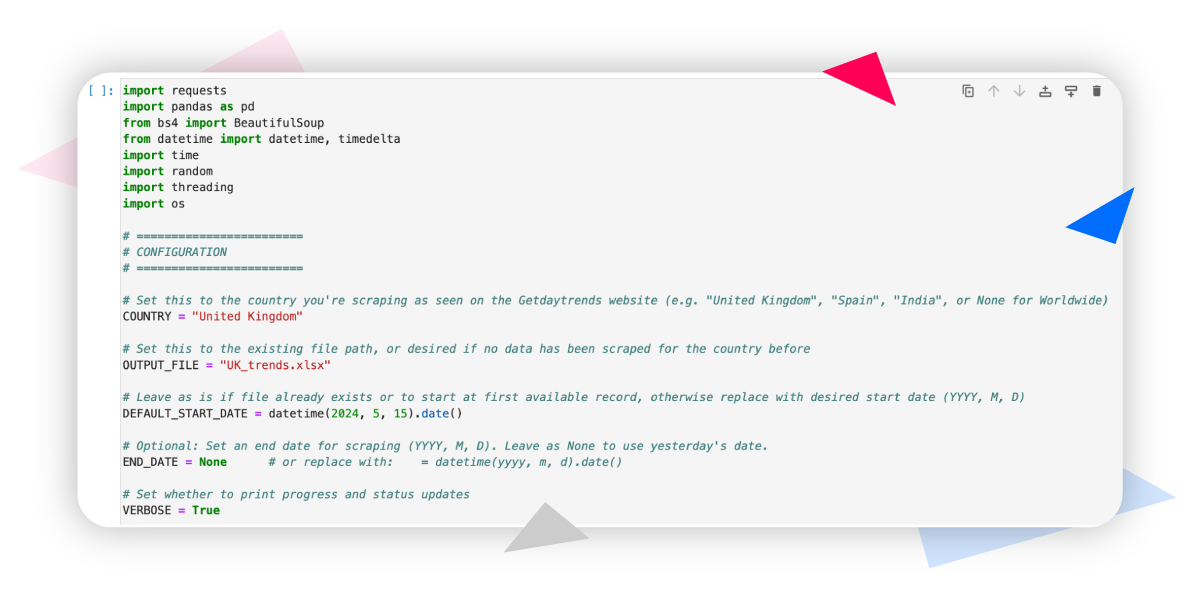
The configuration section of the scraper code block
What I took away from my data internship experience
In just two weeks, I gained far more than I expected, from new technical skills, insights into meetings and managing daily tasks, to the best emojis to react with on Slack (*slay*).
Here are a few of my key takeaways from my time at Reboot:
1. Web scraping isn’t as daunting as it first appears
Now this is coming from someone who has only scraped one, fairly simple, website - but nonetheless, the process was quick to understand, and I feel confident that scraping trickier websites would now be a manageable process rather than completely intangible.
2. Data analysis has many applications
Data can be used for far more than formal research and business strategy - it was incredibly exciting from an analysis pov to get to create pr campaigns surrounding interesting statistics, and makes for a much more reliable style of journalism in the process
3. Reusability and flexibility are incredibly valuable
Turning a one-off analysis into a reusable, adaptable tool was one of the most satisfying parts of the project, and making a few tweaks to the code will allow a whole host of different campaign ideas.
4. Company culture matters
Reboot’s supportive environment and progressive policies made a big impression. It was refreshing to see that productivity and well-being don’t have to be at odds. Wednesday slump where!?
5. Independent learning is where I thrive
The open-ended nature of the project gave me space to explore, troubleshoot, and grow my skills in a way that formal coursework doesn’t always allow.
Team reflections
I was lucky to be supported by such a welcoming and insightful group throughout my placement, especially Paul, who helped guide the project from start to finish.
Here’s what he had to say at the end of my internship:
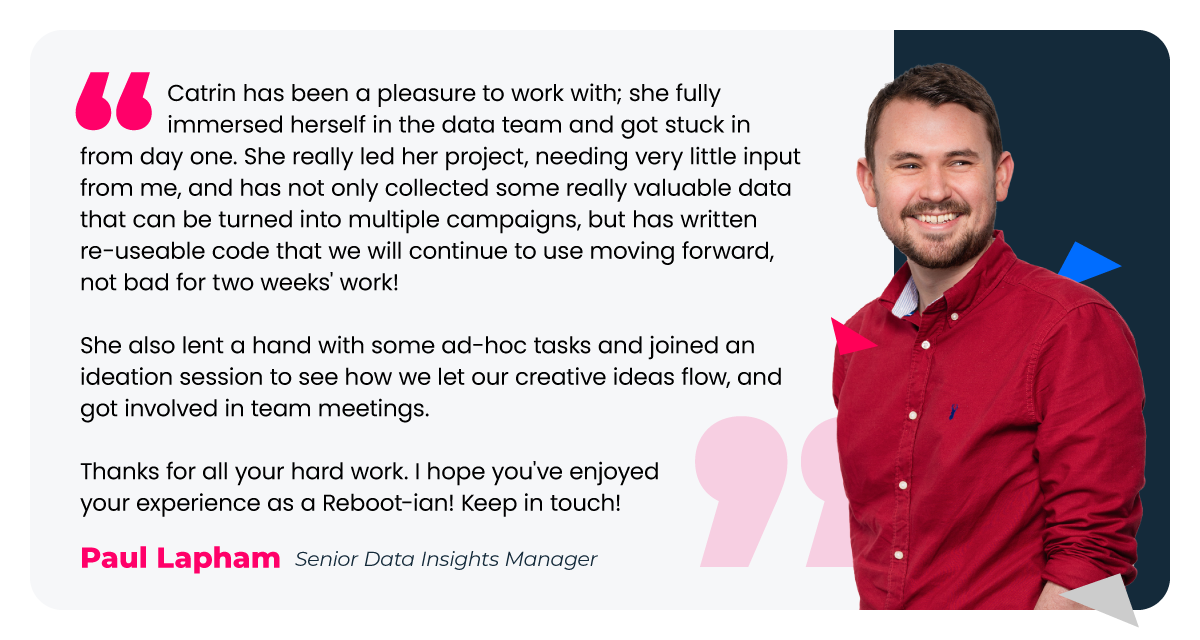
At the end of my internship, I was greeted by lovely messages from the wider Reboot team on Slack. Here's a screenshot of some of those messages I received on my final day:
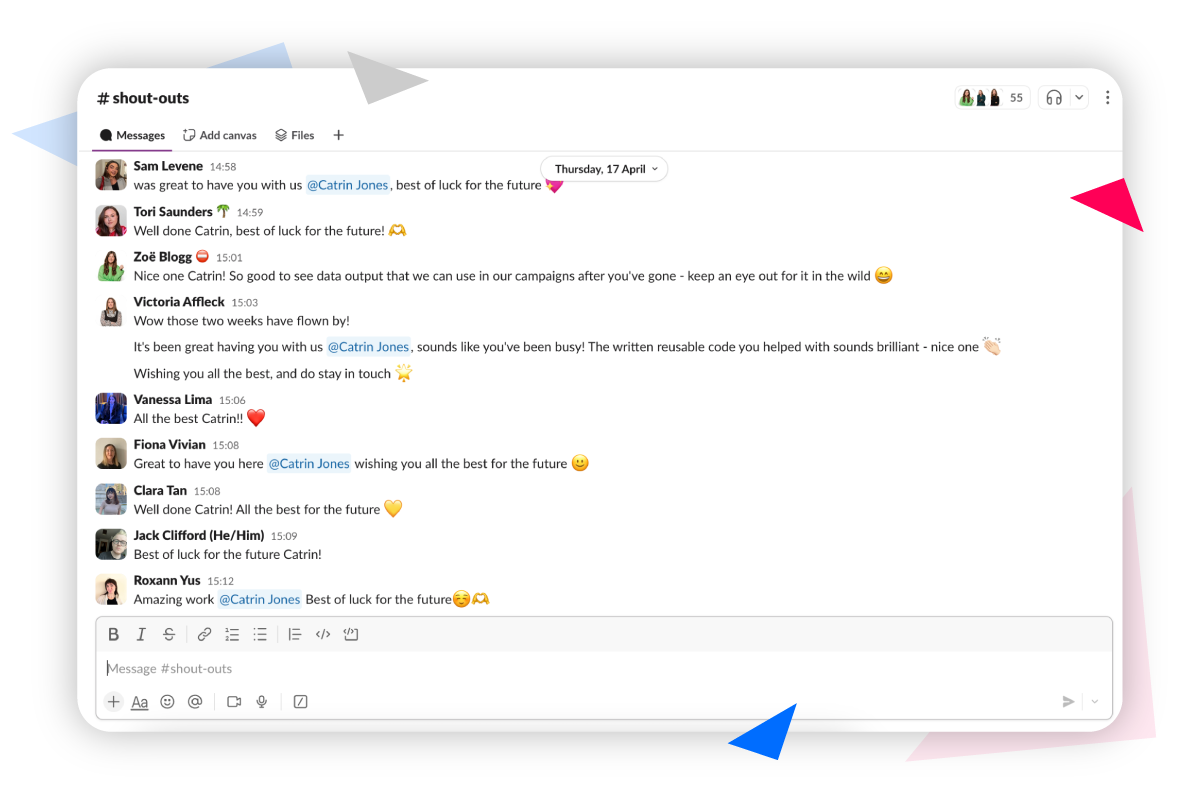
Screenshot of the team’s goodbye messages on Slack
Final thoughts
I’d like to say a huge thanks to the team at Reboot for the opportunity, and to the Workplace Insights scheme for making it possible. I left feeling more confident in my abilities, more curious about where data can take me, and very glad I said yes to a challenge I wasn’t sure I was ready for.
Also, I now know more than anyone should about X (Twitter) trends. So, if you ever want to know what was trending in May 2024... you know where to find me.
